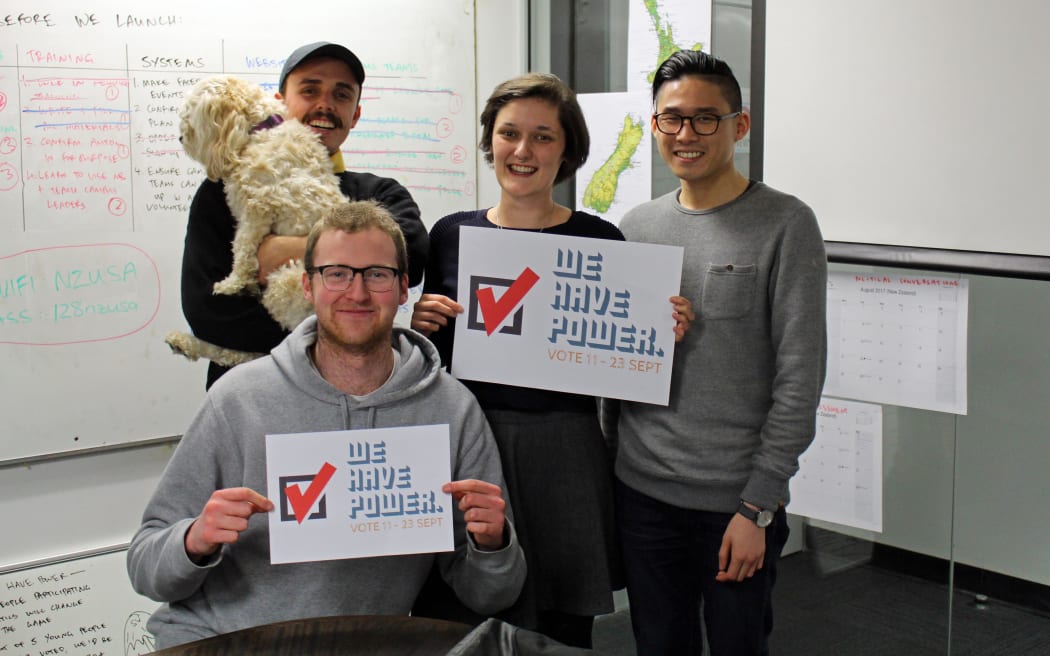Can students get students to vote?

The team behind 'We Have Power', including Jonathan Gee (r) and Marlon Drake (bottom). Photo: Supplied
The biggest student body in the country has launched what it hopes will be a national movement to get young people voting.
The New Zealand Union of Students Association says its ‘We Have Power’ campaign is inspired by the “big organising” models of young political movements overseas.
More than one third of eligible Kiwis aged between 18 and 24 didn’t vote in 2014.
“There has been this recurring narrative that there’s a low voter turnout because youth don’t care,” says association president, Jonathan Gee.
“The main principle behind this campaign is that young people do care, but politics has really failed to address youth issues. It’s a self-fulfilling prophecy - if you say young people won’t vote, they won’t.”
‘We Have Power’ is difficult to define. Right now, it involves volunteers at up to 20 tertiary campuses around the country. Over the next few weeks, those volunteers will be approaching thousands of students at classes, flats, sport clubs, and on Facebook and Twitter.
Gee says they’ll be “lecture bashing” - invading lectures to hand out enrolment forms and speak to crowds. They’ll also be “text banking” - messaging people reminding them to register and vote and organise others - a tactic that worked for Barack Obama in 2008.
There will also be a bit of the old-fashioned door-knocking at the halls of residence.
Once advance voting begins, they will plan mass walkouts of lectures whereby groups of students head to campus polling stations together. Gee says there are other events planned to get young people voting as early as possible.
“We want to get people talking to friends, and friends of friends, about politics, whether that’s at flats, at uni or on social media,” he says.
“We know that students know students best, and if there are some who aren’t usually politically-minded, they’ll know how best to engage with them.”
He says those volunteering aren’t just politics students, and those being targeted aren’t just students.
“We want this campaign to eventually be wider than just at universities and we’ll be reaching out to anyone under 30. As you’ve seen from overseas campaigns, young people can be at the forefront of elections and can be incredibly influential.”
I think people want to be a part of something big.
Victoria University student Marlon Drake, 20, is one of several team leaders around the country. He leads about 70 volunteers at Vic.
Both he and Gee embrace the term “youthquake”.
“Politics just seems like a back-and-forth between older generations right now. We want to make sure students and young people are aware of the power they have,” he says.
“These are exciting times and the idea of a youthquake isn’t far off for us. I think people want to be a part of something big.”
Eastern Institute of Technology student Moana Potaka, 28, is another volunteer. “Many of the barriers to education facing students like low income, poor housing, and lack of ability to travel to campus can be fixed by politicians.
“If politicians used their power to stand up for students, students would use their power to vote them into Parliament.”
Gee echoes Potaka’s frustration. “We’re doing this because we’re fed up with politics as usual. Politicians fail to speak to the issues we care about and are failing to change things for the better for us.
“By voting we have the power to change things.”


